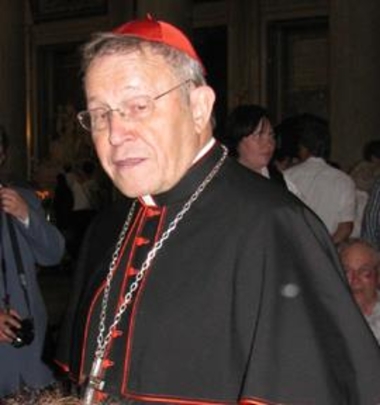Pope opens critical week for reform, family issues

Vatican City (AP) — Pope Francis on Monday opened the most critical week of his year-old papacy: Preparations get underway for a summit on family issues that will deal with the widespread rejection by Catholics of church teaching on contraception, divorce and gay unions. In addition, two commissions of inquiry on Vatican finance are reporting their recommendations for reform
Planning for the October meeting of bishops at the Vatican on family issues are on a slightly accelerated timetable. A group of cardinals are expected to discuss the summit, or synod, in the second half of the week and then the main planning group gets down to work early next week.
Francis called the synod late last year and took the unusual step of commissioning surveys from bishops’ conferences around the world to ask ordinary Catholics about how they understand and practice church teaching on marriage, sex and other issues related to the family.
The results, at least those reported by bishops in Europe and the United States, have been an eye-opener: The church's core teachings on sexual morals, birth control, homosexuality, marriage and divorce were rejected as unrealistic and outdated by the vast majority of Catholics, who nevertheless said they were active in parish life and considered their faith vitally important.
German Cardinal Walter Kasper has been tasked with delivering an opening speech to the group on Thursday — an indication that the cardinals and pope will get an unfiltered view of this reality when it comes up for discussion this week.
Germany's bishops delivered some of the most startlingly blunt results from the survey, saying: "The church's statements on premarital sexual relations, on homosexuality, on those divorced and remarried and on birth control ... are virtually never accepted, or are expressly rejected in the vast majority of cases."
Francis greatly admires Kasper, who was the Vatican's chief ecumenical officer for nearly a decade. During his first Sunday noon blessing as pope, Francis praised Kasper by name, saying he was a terrific theologian who had just written a great book on mercy.
The first half of Francis' busy week is being devoted to the third meeting of his "Group of Eight" advisers, the senior cardinals representing every continent who Francis appointed to help him govern the church and overhaul the antiquated and inefficient Vatican bureaucracy.
On Monday, the G8, the pope and his No. 2 heard recommendations from a panel of experts on rationalizing the Holy See's overall financial and administrative structures. On Tuesday, they will hear from the commission of inquiry studying how to reform the troubled Vatican bank.
Francis has placed particular priority on overhauling the scandal-marred Vatican bank, long accused by Italian authorities as being an off-shore tax haven for well-connected Italians and, more recently, a place where money could be laundered.
Francis was elected with a mandate to reform the Roman Curia, as the Holy See administration is known, to make it more responsive to the needs of the 21st-century Catholic Church. He wants to make the curia more of a support to bishops trying to spread the faith rather than an obstacle, and this week's meetings are a clear indication that improving the Vatican's financial structures is a core piece of that reform.
In between, Francis will preside over his first ceremony to formally welcome 19 new cardinals into the elite club of churchmen who will eventually elect his successor. In typical Francis style, the new cardinals hail from some of the poorest places on earth, including Haiti, Burkina Faso and Ivory Coast.
___
by Nicole Winfield, Associated Press
Copyright 2014 The Associated Press. All rights reserved. This material may not be published, broadcast, rewritten or redistributed.
The Gayly – February 17, 2014 @ 10:20am





